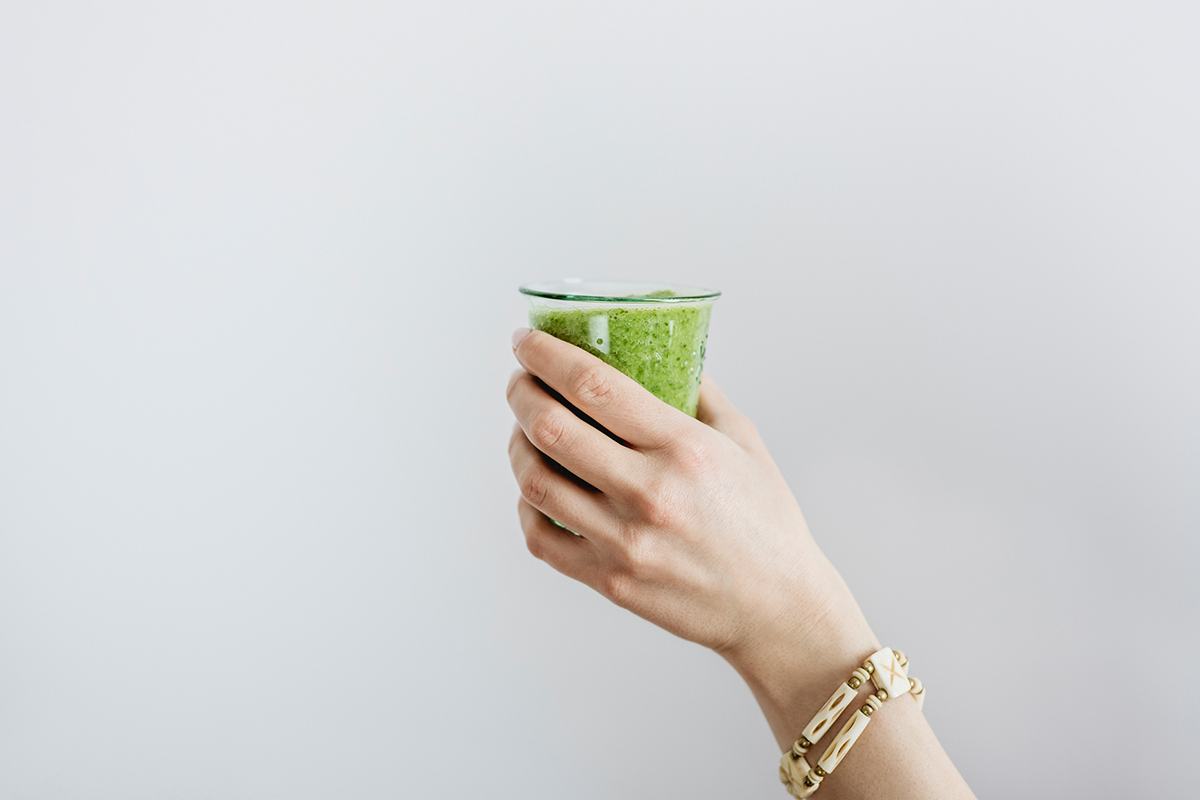Matcha has been having its time in the sun over the past few years. The pulverized green tea leaves create a superfood powder that is high in antioxidants, and makes for a delicious latte. It’s all over your Instagram feed and in everything from smoothie bowls to ice cream.
However, matcha had better watch its back. Moringa is coming in hot for some of the superfood spotlight. Though Moringa is growing in popularity these days, it’s healing properties have long been praised in Ayurvedic medicine. Applied topically or taken internally, it’s said to cure various diseases. Are we finally catching on to the new miracle superfood? Will beloved matcha fall to the wayside now? Thankfully, it’s possible to have both in your daily routine.
What is moringa?
The moringa tree is a resilient one. Though drought-resistant, it thrives in a variety of climates. Much like matcha, moringa powder is composed of pulverized plant leaves. Although most of the plant is edible, the tree is found mostly in the Himalayan foothills, so its leaves are ground into powder form to make it last longer in transit to other areas of the world. Oil from the seeds is commonly found in skincare, but the leaves (and the powder made from them) is where most of the nutrients are found.
Just like matcha, you’ll often see the powder added into smoothie recipes to get the numerous health benefits, but you can even find tea bags for a convenient way to get a daily dosage of the superstar leaves.
What are the health benefits of moringa?
Moringa powder has many impressive health benefits. Few plants can boast such a rich nutritional composition. The powder is rich in vitamins A and C, carotenoids, amino acids, polyphenols, potassium, protein, calcium and much more. In fact, it would likely be easier to list the nutritional values that the plant does not possess rather than which ones it does. This is where moringa has matcha beat.
The many health benefits that this magical powder is rumored to have is lengthy. It’s said to rival turmeric with its anti-inflammatory effects, and have positive effects on the digestive system. One of the most highly favored benefits moringa powders and teas are said to have is a hormone-regulating effect. Much like matcha, moringa is packed with antioxidants, making it a free-radical fighting machine for the body and mind.
Oxidative stress can do damage to the skin and internal organs, so superfoods that are this rich in antioxidants are quintessential in keeping the immune system functioning at its highest levels. Whereas moringa has plenty of antioxidants of its own, matcha has more EGCG and caffeine (Moringa has none). It also tastes better.
Are there downsides to taking moringa?
The biggest downside to taking Moringa is the taste. It is often referred to as the “horseradish tree” because of the similar appearance of the roots, as well as the taste. Whereas matcha lovers will add the green tea powder to lattes, smoothies and countless types of breakfast bowls, you’ll really only see moringa users adding it to their smoothies in small doses. The typical dose of moringa powder is ½ teaspoon every day, or even every few days.
Many people can experience diuretic effects if they take too much of the powder. The health benefits definitely make it worth the not-so-pleasant taste, especially when it’s covered up by a delicious smoothie. But there’s no need to overdo it by drinking it every day for extended periods of time.
Bottom line: While matcha will most likely remain more mainstream than moringa because of the taste factor, having both of these superfoods in your routine is not a bad idea.







